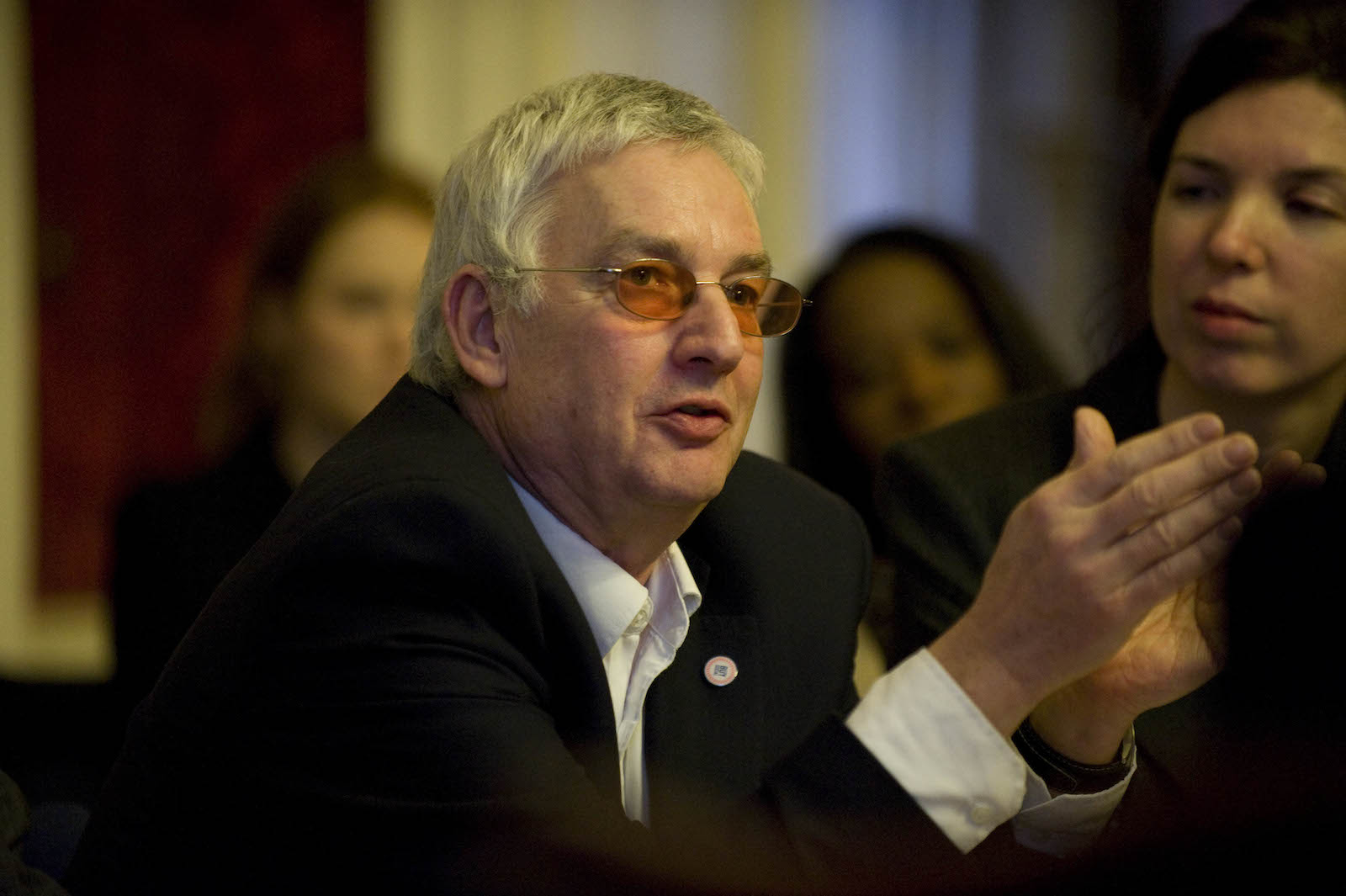OECD report marks "important milestone" for impact investing, says Cohen
The Organisation for Economic Co-operation and Development (OECD) yesterday launched a report that sets out ideas for an international framework for defining and measuring social impact investment.
The report, launched yesterday at a roundtable discussion hosted by the Cabinet Office in London, builds on the work of the G8 Social Impact Investment Taskforce, led by Sir Ronald Cohen, and sets out how the market can be developed further and also how impact investing might provide leverage for more resources for developing countries.
Speaking at the launch, Sir Ronald Cohen, co-founder of social investment specialist Bridges Ventures, chairman of the world’s first social investment bank Big Society Capital and chairman of the G8 Taskforce, said: “This is a very important milestone for us because our challenge, having proved the case for impact investment is clear – that there are powerful drivers for it, is to bring it into the mainstream.
“The fact that the OECD has put in all the effort that it has – it provides us with a framework today for bringing impact investment to the mainstream.”
The report, Social Impact Investment: Building the Evidence Base, has three key purposes – to provide a framework for assessing the social impact investment market, to focus on the need to build a bigger evidence base and to highlight the importance of further international collaborations.
We want to sell social investment across the world.
It sets out seven key characteristics of social impact investment that include social target areas, beneficiary context, measurability of social impact and return expectations.
Minister for civil society Rob Wilson said: “I’m not embarrassed to wave the flag and say that we want to sell social investment across the world.”
He announced that as part of the government agenda to share knowledge and promote social investment globally, “a group of our leading social economy professionals” would this year travel to New York on a trade mission.
Global venturing
The report finds that while there is clear evidence to demonstrate the gathering momentum around social impact investment globally, there is currently a lack of communication between different countries, with perceptions of and the actual shape of the market being very different depending on its location.
Offering the German context, senior project manager at non-profit foundation Bertelsmann Stiftung Jake Benford explained: “We still have a long way to go. We are in a pre-policy, experimental phase and we’re trying to find out whether that phase can be supported to the extent that it generates interest on behalf of policy makers and then takes that next step.
"I think in the UK there is more of a tendency to go out and try things and test things. We tend to spend a lot more time contemplating the idea and how does it fit within other principles and institutions. A report by the OECD really helps because this is not a private sector initiative to view with suspicion, it is an international organisation which takes a technical and careful look at things."
Technology and industry director at the OECD Karen Wilson said that the OECD could play a key role in solving this issue of the varying levels of social investment “illiteracy” – as one attendee at the launch described it – in different countries.
“We were really surprised by how much is out there but it is in little pockets and the key is to try to tap into that. I think the OECD can play a very important role in connecting countries...through the reports, case studies and events we can do,” she said.
Kieron Boyle, head of social investment and finance at the UK Cabinet Office, also raised an important question on this issue of international collaboration. He asked: “When we talk about growing a global social impact investment market, are we talking about that or are we talking about what it takes to grow impact investing markets around the world?”
Creating an inclusive market
Another of the key debates raised at the launch of the OECD’s report was that of inclusivity. Was there a risk that the social impact investment market was exclusively for government and the very wealthy?
Chief executive of Big Issue Invest Nigel Kershaw said that in order to create “a real sea change” and a “radical change where people believe finance can be a source for good”, the social impact investment market must be opened to the general population on a range of incomes.
 Nigel Kershaw, Big Issue Invest. Photo credit: Cabinet Office
Nigel Kershaw, Big Issue Invest. Photo credit: Cabinet Office
One of the ways in which this inclusivity was being pioneered, Kershaw explained, was through the Threadneedle UK social bond fund, in partnership with Big Issue Invest where the smallest investor was “a person who put £300 saving into their ISA and the largest investor is a local pension authority that has put £40m”.
Lead executive at Canada’s MaRS Centre for Impact Investing Tim Jackson described how its social venture exchange, which had recently also been adopted in California, USA, was also trying to tackle this issue.
“It is a meeting place for entrepreneurs looking for investment and potential investors,” he said. It was tailored towards relatively small amounts with a $25,000 cap, he explained.
Another solution to prevent the social impact investment market from staying too niche is crowdfunding. In France crowdfunding has been allowed to be provided to social organisations in amounts up to €1,000 without having to go through all of the financial regulation on the distribution of investments.
Cohen said: “I think crowdfunding could well become a very important vehicle for impact investment.”
Looking ahead
Looking to the future and the next steps to be taken in pushing forward the impact investing agenda, Cohen said: “I hope the report will encourage Turkey, which is leading the G20 and which is in conversation with us at the moment and is a member of the OECD, to bring the issue of impact investment to the table of the G20.
“I look forward to – when the Taskforce formally completes its work on the 31st of July – the creation of a global steering committee on impact investment.”
The OECD’s Social Impact Investment: Building the Evidence Base report is available to download here.
Header photo credit: Cabinet Office



